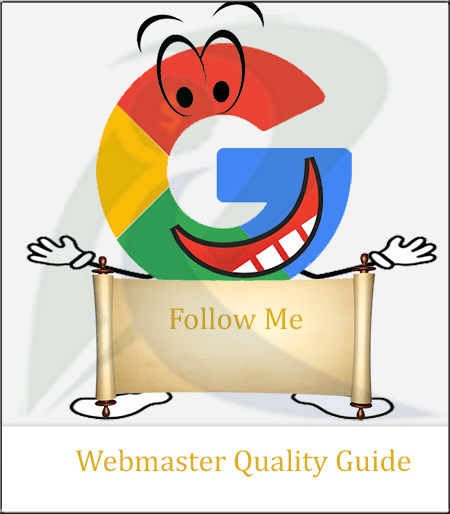Hi, guys, in this post we will disscuss about webmaster quality guidelines. Webmaster quality guides cover the most widely recognized types of tricky or manipulative ways of creating content. However, Google may react adversely to another deceiving rehearsal, which we will cover in the next articles. It’s nothing more than false hope for you that Google will not recognize such things.
Publishers who spend their energies maintaining the soul of the essential standards will generally get organic traffic. Google appreciate them and give a preferred ranking over individuals who invest their energy searching for provisos they can abuse.
The only thing that Google never compromises on is the quality of content. In this article, we will be precisely discussing those points:

Webmaster Quality Guidelines
Basic Principles:
Google has divided its guideline into two categories, and the first is basic principles. Those are common for all niches:
- Publishers have to solve the queries of users, not search engines, so the primary focus should be on users.
- Do not try to manipulate users.
- Strictly keep an eye on Google’s violation policies.
- Always work on value addition. Try to add something new and unique.
Specifications:
This is a vast topic. That covers several topics and is part of negative or black hat SEO. Through these specifications, Google has limited the chances of using someone else’s content to build an empire over it. However, all these specifications help publishers improve their content’s quality.
Automatic Content:
Automatic content is not necessarily bot-generated content but also grabs search engines’ attention but has no relevance to any search query. Or any content that is meant to manipulate search engines through programmatic systems.
For Example, sentences are technically optimized to rank but do not have any valuable content. Or content that is created by using the Markov chain or other algorithms.
Scheming With Link:
Buying or selling links are known as link schemes to increase page authority. This practice is not encouraged at all; it can cause publishers to get penalized by Google.
It also includes an exchange of products for backlinks, plus excessive link exchange.
Affiliated Programs:
Google always encourages us to create unique content and add value to the community. This is specifically for affiliated websites. As they already represent someone else’s product, if they have to explain the product amazingly – affiliated websites should always give honest reviews.
Whereas many affiliate publishers copy as it is from the merchant’s website. But Google states you only have to pick very few contents from the original website.
Malicious Behavior:
Creating a page with irrelevant content opposite to what a user is looking for. Such publishers also add a button or pop-ups, which cause users to land on the same page even trying for a long to leave it. This is the most severe violation and leads sites to get banned by Google.
General Structure:
Avoiding general structured data given by Google can de-rank your website on the search engine. Since Google will consider that your content quality is not up to the mark. This includes:
- Developer’s Guide
- Technical Guide
- Format
- Index
- Quality Guideline
- Content
- Relevancy
- Completeness
- Location
- Specification
- Images
These are the quality measurements that Google keeps an eye on. What other activities you need to avoid for better quality are discussed in this article.